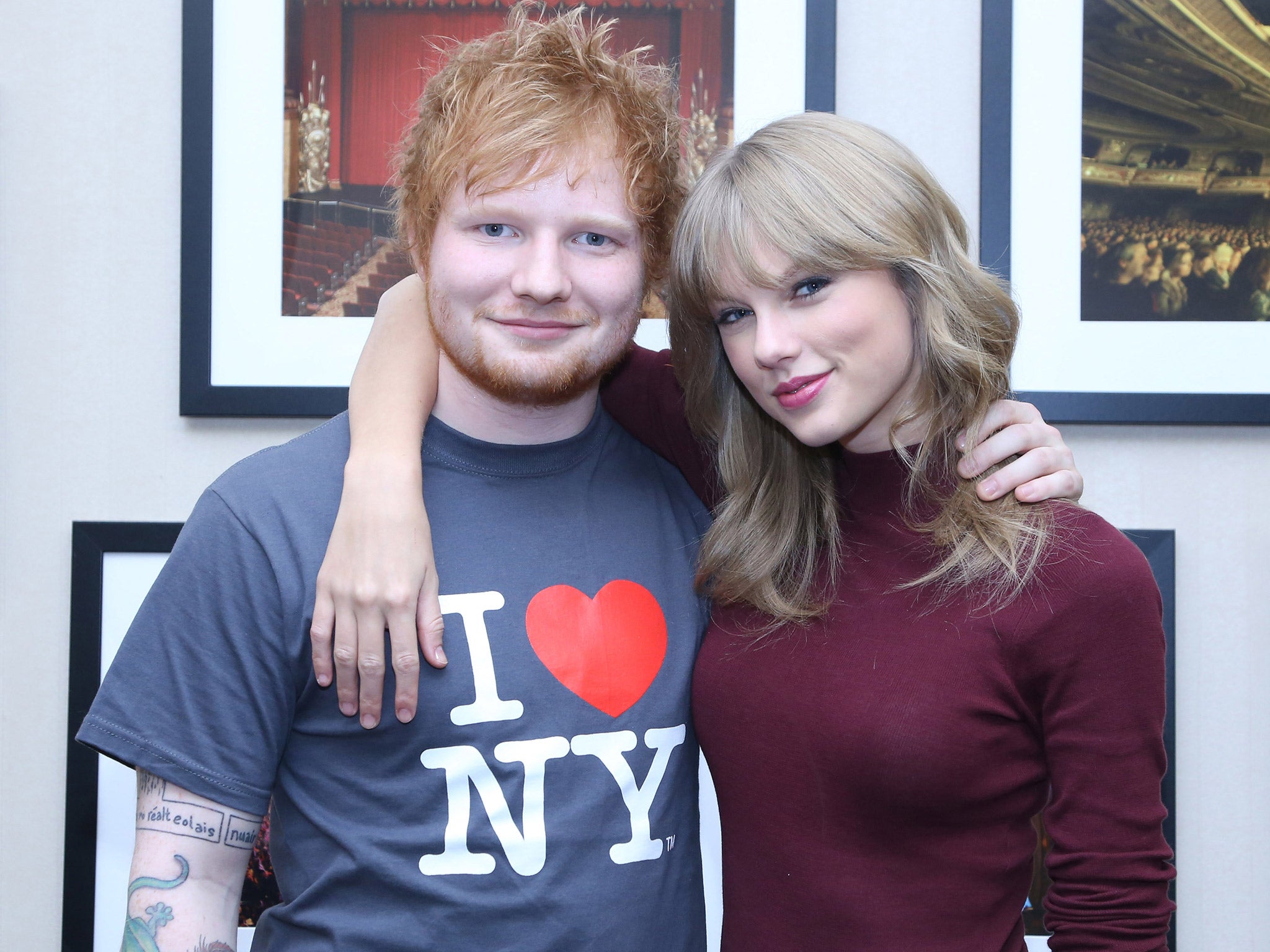Ed Sheeran: Why did he top Radio 1Xtra's power list?
How did an ordinary-looking boy with a guitar from Suffolk conquer the music industry, let alone a black and urban power list? Gillian Orr tracks the rise of Ed Sheeran

Your support helps us to tell the story
From reproductive rights to climate change to Big Tech, The Independent is on the ground when the story is developing. Whether it's investigating the financials of Elon Musk's pro-Trump PAC or producing our latest documentary, 'The A Word', which shines a light on the American women fighting for reproductive rights, we know how important it is to parse out the facts from the messaging.
At such a critical moment in US history, we need reporters on the ground. Your donation allows us to keep sending journalists to speak to both sides of the story.
The Independent is trusted by Americans across the entire political spectrum. And unlike many other quality news outlets, we choose not to lock Americans out of our reporting and analysis with paywalls. We believe quality journalism should be available to everyone, paid for by those who can afford it.
Your support makes all the difference.Few were pleased when Radio 1Xtra, a station dedicated to black music, named Ed Sheeran number one on their "Power List" this week. Grime artist Wiley called it "the saddest list in music history". Newsnight even covered the story, with Emily Maitlis asking: "How did middle-class, white boy Ed Sheeran get named the most important act in black and urban music?"
His new album has just gone to number one in the US, he's won two Brit awards, he'll play five nights at London's O2 Arena later this year, and he counts Elton John and Taylor Swift as friends, yet the 23-year-old from Suffolk still manages to have the air of a geology student who might eat Frosties for dinner.
Perhaps a more pertinent question that Maitlis could have asked is: "How did middle-class, white boy Ed Sheeran conquer the music world?" In today's image-obsessed climate, the global success of Sheeran is something of an anomaly; a glitch in the entertainment matrix, if you will.
The son of an art historian father and a jewellery-maker mother, Sheeran left home at 17 to couch-surf and gig. He has described himself as being "technically homeless" for the next three years. But the more he played, the more people listened. He sold CDs out of his rucksack and played open-mic nights all over the UK (as well as a stint in LA). His unique sound quickly gained a following.
According to Tim Ingham, the editor of Music Week: "Ed Sheeran's industrial-level work ethic and adoration of hip-hop brought him great respect from the UK's rap music community in his early days. He was particularly embraced by urban online music broadcaster SBTV, who were wily enough to know that a ginger kid from Suffolk rapping over looped guitar would immediately get their audience's attention."
By the time the record labels came calling in 2011, he was already selling out shows and had a sizeable fan base due to an astute use of social media. But had he turned up to Atlantic Records before then, you have a feeling they would have laughed him out the door. Sheeran went on to release a number of sappy ballads ("The A Team", a laughably po-faced song about prostitution, particularly springs to mind) and today he is known as a bit of a punchline, something he is only too aware of. Last month, he told a national newspaper that he realised much of the public thought of him as "an acoustic balladeer who sings soppy love songs to teenage girls".
The likes of Ingham, however, insist that there is more to him than that. "Whatever you think of Sheeran's sappier Capital FM-friendly ballads – which admittedly now tend to make up the majority of his output – I defy anyone to watch his SBTV performance of "You Need Me Man" – rapping, loops, self-percussion and all – and not come away a bit dazzled."
For Radio 1 DJ Scott Mills, it is precisely this everything-and-the-kitchen-sink approach that has allowed Sheeran to have such a diverse fanbase. "There's something for everyone," says Mills. "He rose to prominence because of his rap skills but since then he's covered R'n'B, still does a bit of hip-hop, does folk, big pop songs. He's one of those artists who seems comfortable with all of those styles."
Underestimate Sheeran at your peril. The guy even managed to get Pharrell Williams to collaborate (well, at least stand around and look cool in sunglasses in the video) on his new single "Sing". And while he leads an increasingly starry life, he remains the everyman; your hungover little brother in a hoodie.
Enjoy unlimited access to 100 million ad-free songs and podcasts with Amazon Music
Sign up now for a 4 month free trial (3 months for non-Prime members)
Enjoy unlimited access to 100 million ad-free songs and podcasts with Amazon Music
Sign up now for a 4 month free trial (3 months for non-Prime members)
"You can't really see him stepping out of a limo; you can imagine him getting the Tube," suggests Mills. "He's not arrogant, he's very likeable. It's a weird kind of mismatch. He's in that world but he doesn't appear to be that kind of person."
He might be the butt of music snobs' jokes (and this week be under fire from angry urban artists), but, when he has everyone from Williams to Rick Ross to Paul McCartney cooing over him, it's pretty clear who is having the last laugh.
Join our commenting forum
Join thought-provoking conversations, follow other Independent readers and see their replies
Comments